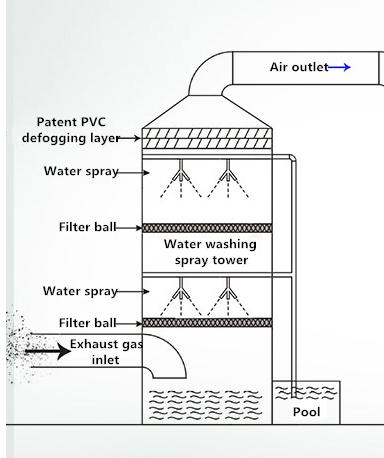Equipment for Evaluating Tensile Strength and Assessing Material Durability in Various Applications
Understanding Tensile Strength Testing Equipment
Tensile strength testing is a crucial procedure in materials science, engineering, and quality control that evaluates how materials respond to tension or pulling forces. The importance of this testing is evident across various industries, including construction, manufacturing, and aerospace, where the integrity and durability of materials are paramount. To carry out tensile strength tests accurately, the right equipment is essential. This article will explore the various types of tensile strength testing equipment and their applications.
What is Tensile Strength?
Before delving into the equipment, it’s important to understand tensile strength itself. Tensile strength is defined as the maximum amount of tensile (stretching) stress that a material can withstand before failure. It is a critical property that indicates a material's ability to perform under tension. The results from tensile strength tests help in evaluating materials for various applications, ensuring that they are fit for their intended purpose.
Types of Tensile Strength Testing Equipment
1. Universal Testing Machines (UTM) Universal testing machines are among the most versatile pieces of equipment used for tensile strength testing. These machines can perform various tests, including tensile, compression, and shear tests, making them a staple in laboratories. They typically consist of a load cell, a control system, and a crosshead that grips the material being tested. UTMs can vary in size and capacity, accommodating materials from metals and plastics to textiles and composites.
2. Electronic Tensile Testers These testers employ electronic controls to apply tension to the materials being tested. They provide precise measurements and can often interface with software for data analysis. Electronic tensile testers are particularly beneficial for research and development environments, where detailed testing and high accuracy are required.
tensile strength testing equipment

3. Hydraulic Testing Machines Hydraulic machines utilize hydraulic power to generate the tensile force. They are especially advantageous for testing larger specimens or materials that require significant load capacities. These machines are robust and can handle various materials, making them suitable for industrial environments.
4. Handheld Tensile Testers For quick and on-site testing, handheld tensile testers offer convenience and portability. These devices are designed for field applications and can provide immediate feedback on material strength, making them beneficial for construction and inspection teams.
5. Extensometers Extensometers are devices used to measure the elongation of a material during the testing process. They can be integrated with other tensile testing equipment to provide detailed reports on strain and stress, enhancing the overall understanding of material behavior under tension.
Applications of Tensile Strength Testing
The applications of tensile strength testing are vast and diverse. In the automotive industry, materials need to meet stringent safety standards; hence, tensile testing is crucial for ensuring that components can withstand the stress of driving and crashes. In construction, tensile strength tests for concrete and steel confirm that structures will endure various loads and environmental conditions. Additionally, the textile industry uses tensile testing to assess the strength of fabrics, ensuring that they can withstand wear and tear throughout their lifespan.
Conclusion
Tensile strength testing equipment plays an essential role in the evaluation of material properties, ensuring that products meet safety and performance standards. With options ranging from universal testing machines to handheld testers, the choice of equipment depends on the materials involved and the specific requirements of the testing environment. As technology continues to advance, the accuracy, efficiency, and versatility of tensile strength testing equipment will undoubtedly improve, leading to better material development and safety across various sectors.
-
Why the Conductor Resistance Constant Temperature Measurement Machine Redefines Precision
NewsJun.20,2025
-
Reliable Testing Starts Here: Why the High Insulation Resistance Measuring Instrument Is a Must-Have
NewsJun.20,2025
-
Flexible Cable Flexing Test Equipment: The Precision Standard for Cable Durability and Performance Testing
NewsJun.20,2025
-
Digital Measurement Projector: Precision Visualization for Modern Manufacturing
NewsJun.20,2025
-
Computer Control Electronic Tensile Tester: Precision and Power for the Modern Metal Industry
NewsJun.20,2025
-
Cable Spark Tester: Your Ultimate Insulation Assurance for Wire and Cable Testing
NewsJun.20,2025
 Copyright © 2025 Hebei Fangyuan Instrument & Equipment Co.,Ltd. All Rights Reserved. Sitemap | Privacy Policy
Copyright © 2025 Hebei Fangyuan Instrument & Equipment Co.,Ltd. All Rights Reserved. Sitemap | Privacy Policy
